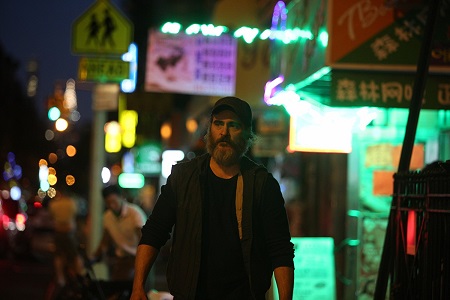

  |
| Photo © 2017 Why Not Productions/BFI/Film4, © 2018 Amazon Studios |
| Awards: | |
| Cannes Film Festival: Best Actor (Phoenix); Best Screenplay (tie) | |
| Independent Spirit Awards: Best Film Editing (Joe Bini) | |
| Boston Society of Film Critics: Best Director | |
| Permalink | Home | 2017 (wp) | 2018 (us) | ABC |